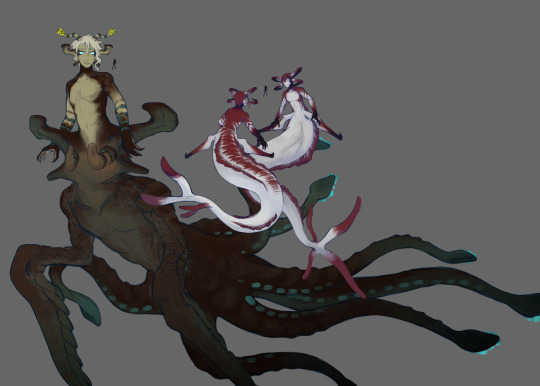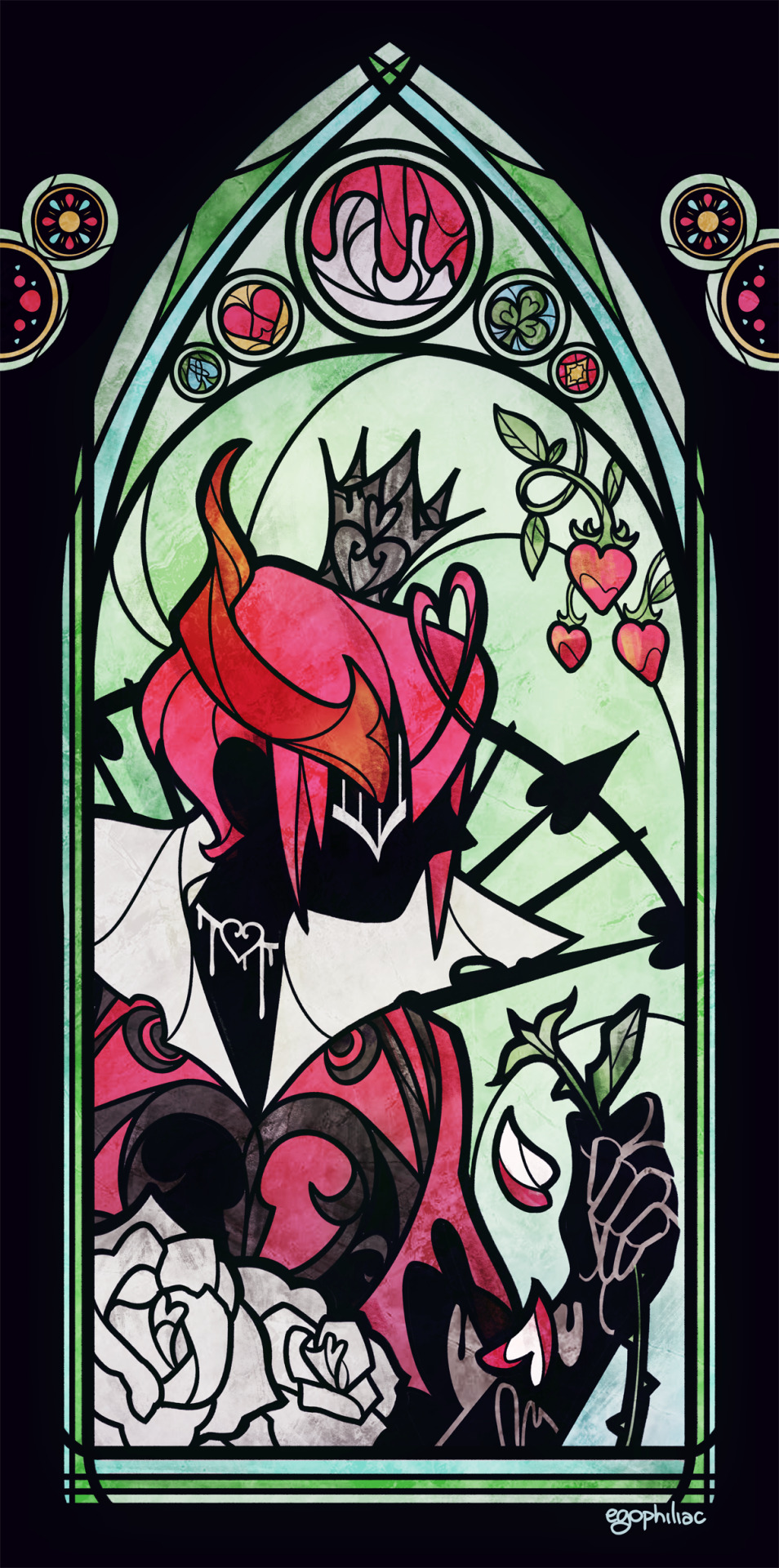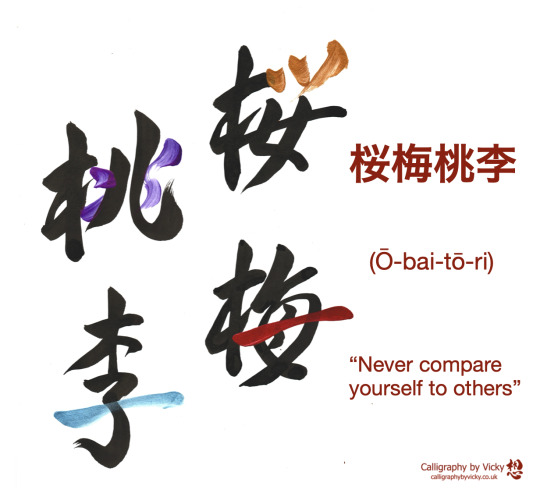Cosplay | JP Translations | They/Them | 20+ |Welcome! I’m Griffin and I wanted a place to post my cosplay and document my process of translating various things from Japanese to English (plus whatever else I feel like lmao). I hope you enjoy your stay!
Don't wanna be here? Send us removal request.
Text

Those poor, unfortunate souls...
2K notes
·
View notes
Text

16 notes
·
View notes
Text

Rollo pulls were unsuccessful, unfortunately. But, now I have THE RidoAce card. When I groovify it, I can look at my sons being happy and gay.

Staring lovely into each other’s eyes is extremely straight behaviour. I do it with my besties all the time. 😩👌🏻

Manifesting that Rollo still somehow comes home, though. 🥹
#twisted wonderland#gacha pulls#twst#ace trappola#riddle rosehearts#riddle x ace#rollo flamme#come home pls#they’re so cute#i love my gays
31 notes
·
View notes
Text
Sea emperor leviathan Azul is done!! another nightmare to draw but still fdkhfdhjsfdhjfdshfds


And the twins for size reference fdkfdskjdfsjksdjks
Maybe Floyd was right, we really are a shrimp hflhdkhdldhkydlydkd
Alternate colors below

4K notes
·
View notes
Text

just kinda wanted to try something like this! not sure if I'm gonna do the rest of the guys too, but I figured I'd at least start with Riddle. 🌹
5K notes
·
View notes
Text

AHAHHAA HERE WE GO AGAIN.

LIVES IN MY BRAIN RENT FREE.
#really makes you think#we live in a society#people die if they are killed#after all having eternal life means he won’t die#did you really think that killing me would be enough to make me die?#fairy tail#fairy tail memes#anime quotes#fate stay night#fate series#fate grand order#fate series memes#emiya shirou
25 notes
·
View notes
Text

crossing my fingers and wishing upon every star that chapter 10 finally brings us the tweel cards 🤞🤞
5K notes
·
View notes
Text
Japanese JLPT N3 Study Post #4
久しぶり!It's been a while! Things became super hectic in my personal life, but I'm finally back with more grammar posts. I hope to upload a new post every few days, but we'll see how it goes.
Anyway, this time we'll be taking a look at 上げる (あげる)/上がる(あがる)to finish doing. I'll also put together a master post, to help people navigate through each study post I've made.

I recently figured out this "keep reading" function! So hopefully this works well, and it clogs up people's feeds less. Let's continue!

Grammar Point: 上げる/上がる (あげる・あがる)
Meaning: ~to finish doing.
How to use it:
Verb ます stem + あげる/あがる
I explained what a Verb Stem is, and how it functions in Japanese, in my 3rd Grammar Point post, so I have linked it here, if you want to refresh on that!
上げるvs.上がる
I'm sure people are wondering, just like I did, what the difference is between these two!
The difference lies in whether it is a Transitive (他動詞) or Intransitive (自動詞) verbs。 (I should make a separate post on this, because I still stuff this up sometimes, honestly. I'll link it here, once I make it).
上げる(あげる) is a Transitive Verb (他動詞). Transitive verbs require an agent to enact an action upon something. It encapsulates personal will being essential to the movement.

上がる(あがる)is an Intransitive Verb (自動詞). Intransitive verbs have the power to move of their own accord. The action can be thought of as simply existing as opposed to possessing any form of conscious choice or willpower.

I'll make specific note in the below examples, to make the distinction clear.
Examples:
彼女は小説を書きます上げた。
彼女は小説を書き上げた。
She finished writing her book.
Transitive. She finished writing it by her own willpower. よく頑張ったね!

みんなの意見を取り入れて、とてもいいプランが出来ます上がった。
みんなの意見を取り入れて、とてもいいプランが出来上がった。
A very good plan was completed, incorporating the opinions of everyone.
Intransitive Verb. The plan naturally came together of its own accord/effortlessly/as a matter of course.

研究のレポートを一日に書きます上げた。
研究のレポートは一日に書き上げた。
I finished writing my research report in one day.
Transitive. They finished writing it by their own willpower. よく頑張ったね!

彼はたった一人でそのシステムを作ります上げた。
彼はたった一人でそのシステムを作り上げた。
He finished making that system all by himself.
Transitive. He finished making it by his own willpower. よく頑張ったね!

Conclusion
じゃあ、このブログ投稿を書き上げた!やったね!This week's grammar point works nicely into the conclusion. I hope this was helpful, and feel free to write any suggestions down below in the comments!
Unfortunately, I've been too busy to make further progress on translating Twisted Wonderland. I hope I can get around to it soon.
I'll link the previous three posts, like usual, in case you want to check them out (though I will replace it with the master post, when I get around to putting that together). Thank you for reading!
References
Previous Posts
#japanese#japanese language#language stuff#language learning#japanese learning#study notes#language#日本語#日本語の勉強#日本語文法#twisted wonderland#my translations#neutronstartranslates
5 notes
·
View notes
Text
I love how you broke this down! Very comprehensive!
桜梅桃李 (o-bai-to-ri) “never compare yourself to others”

This yo-ji-juku-go (Japanese 4-character idiom) is comprised of 4 beloved Japanese trees. They are:
桜 = cherry (sakura)
梅 = apricot (ume)
桃 = peach (momo)
李 = plum (sumomo)
Each of these iconic trees blossoms in its own time and in its own unique way.
桜 (sakura) are of course the cherry blossom trees famous for blooming spectacularly and incredibly briefly once a year, usually in April. Sakura trees in full bloom is an annual event, and people go to their local park to see them, take photos, and have picnics underneath them. It's such a big deal that it's reported on the weather forecast, with reporters commenting on how quickly the "sakura front" is moving northwards across the country.
梅 (ume) is the "ume" in umeshu! This is a sweet liqueur which is made from soaking ume in sake. It tastes amazing, and is one of the things I miss most about Japan. Japanese learners will no doubt recognise "ume" as usually being translated as "plum", however it is technically closer to the Western apricot.
桃 (momo) is one of the best-loved fruits in Japan. There is even a fairy story called "Momo-taro" about a little boy who comes from inside a peach. He grows up to be a great hero, of course, and saves everyone from a demon. "Momo" is also a fairly common girls' name.
李 (sumomo) are known as "Japanese plums" or "Asian plums". The trees are famous for their delicate white flowers. They usually bloom just before the sakura. Whilst not as famous or as showy as sakura, they are well-loved for their elegance, and for being a sign of spring.
This one-off calligraphy artwork is available on my Etsy shop here:
303 notes
·
View notes
Text
Japanese JLPT N3 Study Post #3
Welcome to my third study post, everyone! Today, I'll be making notes on the grammar point 合う to mean "Do something together." So, let's get into it!

Grammar Point 合う/あう (au)
Meaning: "Do something together."
How to use it
Verb ます stem + 合う/あう
For those wondering what "Verb Stem" means, essentially, it's the conjugation of a verb into ます form, where you then remove ます。I'll make this clear, when I write out the examples. I will strike through ます where I remove it, to assist others with understanding how "Verb Stems" in Japanese work.
Examples
私達はその件について話します合いましょう。
私達はその件について話し合いましょう。
Let's discuss together regarding that matter.

2人は愛します合っている。
2人は愛し合っている。
Those two are in love with each other.

その2人はいつも競います合っている。
その2人はいつも競い合っている。
Those 2 are always competing with each other.

合うvs会う
Now, this isn't explicitly related to this grammar point, but I know this is something I always used to have confusion over, so I thought I'd include a point on it. These two words are both spelt and pronounced the same way, but their meaning is different. I'll explain this down below.
会う (au)
Commonly used to mean "to meet" or "to see someone."
This word uses the kanji 会, which conveys the idea of "coming together."
It means to physically meet someone/a group of people.
Example
友達に会う。
To meet a friend.

合う (au)
合う means "to match", "to fit", or "to go well together".
This word uses the kanji 合, which conveys the idea of harmony or agreement.
合う is used when talking about things that are compatible, or people who get along well together.
Example
この靴は私の服に合う。
These shoes match my clothes.

彼と彼女は気が合う。
They get along well together.

I hope this helps clarify the difference between the two!
Twisted Wonderland Notes
Unfortunately, I haven't got much done on the translation of Volume 1 of the Light Novel. I ended up being far busier over the weekend than I had anticipated. I'm hoping to get started on it this week, so if you're looking forward to that, stay tuned!

References
I am unable to embed this link, but hopefully you can just copy and paste it, if you want to read more on 会うvs合う。
Previous Posts
If you want to take a look at my previous grammar posts, here they are!
Conclusion
Thank you for reading, and I hope this was helpful! As always, feel free to write any suggestions down in the comments, or any other grammar points you would like me to break down!
#japanese#japanese language#language stuff#language learning#japanese learning#study notes#language#日本語#日本語の勉強#日本語文法#twisted wonderland#my translations
22 notes
·
View notes
Text
Japanese JLPT N3 Study Post #2
Hello and welcome to my second study post! The first one actually got a couple of notes on it, which was surprising! Even if these posts only help a few people, I am happy with that. Today, I'll be making notes on the grammar point あまりにも/あまりに meaning too much, so much that, excessively ... So, let's get started!

Grammar Point: あまりに(も) (amarinimo)
Meaning: "Too much, so much ... that, excessively.
あまりに is the adverbial form of あまり.
If you want to read my previous post on how to use あまり, I have it linked here:
あまりに puts extra emphasis on something that is so much/to such an excess, that it causes an emotional response, such as shock or surprise.
Sometimes, the particle にも is added, to even further emphasis surprise or shock at something in excess.
Since the feeling of this grammatical point can not be encapsulated by simply translating it, I have reiterated in brackets that it is extremely surprising/shocking, to take particular note of this emphasis.
How to use it
あまり+に+も+Verb/Adjective/Adverb
あまりの+Noun
Examples
最近あまりに暑すぎる。
It's far too hot recently. (And this is extremely surprising or shocking).

彼はあまりにも変わった。
He changed drastically. (And this is extremely, extremely surprising or shocking).

あまりに早く着いた。
I arrived much too early. (And this is extremely surprising or shocking).

Twisted Wonderland Notes
I have recently gotten started on translating Volume 1 of the Twisted Wonderland Light Novel, featuring the Heartslabyul story from Book 1 of the game! Firstly, I will finish transcribing Chapter 1 into a Google Doc, and then I will start going through translating it. Once I have a first draft, I will cross-reference it with the official EN Translations of both the manga and the game, to attempt to make it tonally consistent with the official translations we have. I will include more notes on Twisted Wonderland in my next study post.
References
Conclusion
Thank you so much for reading this and I hope it helped you!! See you next time!

#japanese#language stuff#language#language learning#study notes#japanese learning#japanese language#日本語#日本語の勉強#日本語文法#twisted wonderland#my translations
5 notes
·
View notes
Text
The Madoka girls, so cuute!

i like magical girls
2K notes
·
View notes
Text
Japanese JLPT N3 Study Post #1
Hello friends! I don't have much expectation for anyone to really engage with these posts, but for the sake of my own study and ensuring that grammar points in particular stick with me, I will be making various blog posts about my progress. These posts will usually include grammar, kanji and new vocab. They will also start including translation progress notes for light novels (e.g. the Twisted Wonderland Light Novels) which I am particularly keen to translate. I hope these notes will be helpful for other Japanese Language learners!
To study grammar points, I am using JLPT Sensei , and going through the N3 Grammar Points one by one. I will also be cross-referencing with my textbook (when I remember where I put it, haha), and other sites, where needed. I'll include the links for these down the bottom, for anyone who would find them useful. If you have any resources, suggestions, or corrections, feel free to comment them below!

Grammar Point: あまり (amari)
"So much ... That ..."
"To the point that"
When ない form/negative form is used, it becomes:
"Not much"
"Not so much"
The positive form puts emphasis on something done to an excess with negative connotations.
This grammar point is derived from the noun/adverb 余り(あまり)which translates to "remainder", "rest" or "surplus".
余り is also the noun version of 余る. When in a verb form, 余る means "to be in excess", "to remain", "to be too much".
This grammar point will be seen both using the kanji 余り and hiragana あまり。
How to use it:
Positive Form:
Verb (dictionary form) + あまり
Verb (casual, past) + あまり
Noun + の + あまり
Adjective い (み) + の + あまり
Adjective い(さ)+ の + あまり
Adjective な + あまり
Negative Form:
あまり + Verb + ない あまり + Adjective い in ない form (where い becomes くない)
あまり + Adjective な + じゃない/ではない
あまり + Noun + じゃない/ではない 例文
Examples
あまり寒くないよ。It's not that cold.

嬉しさのあまり、彼女は涙を流しました。She was so happy that she cried.

彼は心配するあまり、倒れてしまった。He was so worried that he collapsed.

Conclusion
Thank you for reading, and I hope this was somewhat helpful for you!
References
^^For whatever reason, the link wasn't inserting properly for the page on あまり so you can find it as the second grammar point on this list. See you next time!
#japanese#language stuff#language#language learning#study notes#japanese learning#japanese language#日本語#日本語の勉強#日本語文法
24 notes
·
View notes
Text

“Tell the missus I said hi ~shnookums~” 💖
Hello everyone! Here is my first cosplay post on Tumblr!! I bring you the lovely Angel Dust from Hazbin Hotel. I put a bit of my own twist on him with long hair and a cabaret inspired aesthetic. I hope you guys like it!!
I’ve got some more pictures of him, so look forward to more!
This photo was taken by @kaimuda_king on instagram.
#hazbin hotel cosplay#helluvaboss#hazbinhotel#angel dust#cosplay#angel dust cosplay#pride month#lgbt pride#cabaret#nonbinary#nonbinary cosplayer#Spotify
3 notes
·
View notes


